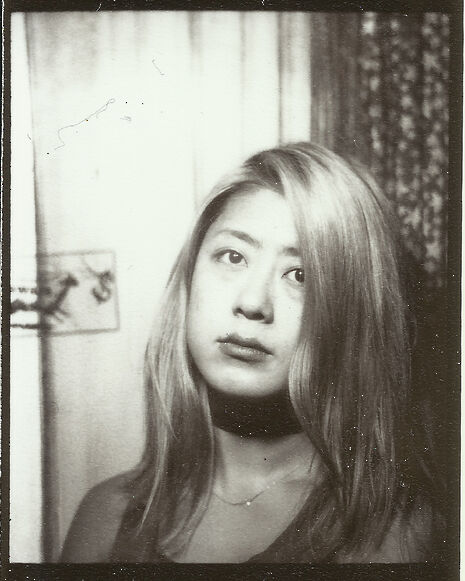Stories of interrupted childhood
Rachel Weatherley dissects Sour Heart, a short-story collection concerned with the vicissitudes of the American immigrant experience

Content Note: this article contains a brief mention of sexual assault.
Jenny Zhang’s fiction debut, Sour Heart, makes no pretence at protecting the sensibilities of her readership. “Back when my parents and I lived in Bushwick in a building sandwiched between a drug house and another drug house, the only difference being that the dealers in the one drug house were also the users and so more unpredictable...” This is how the first story of the collection, ‘We Love You Crispina’ begins.
Sour Heart is a seven part bildungsroman which retrospectively chronicles the coming-of-age of a group of young Chinese immigrant girls, newly arrived in America and hankering for a world beyond their surroundings. A damp, dilapidated, cockroach-infested tenement block in downtown Manhattan functions as a structural cynosure for a collection which traverses cities, states and continents. These stories are sizeable for the short story form, so may require the dedication of a long weekend before the full force of the academic term kicks in. Though far removed from the Cambridge bubble, the impact of these fables cuts close to the bone from any perspective.

Here, the alluring potential of the American Dream collides head on with its realities: poverty, precarious work, xenophobia and nefarious landlords. Such ordeals mean these parents clutch onto their children as they teeter on the precipice between pleasure and pain. ‘“Good night,” my father said. I tried to steady my breathing in the dark. We whispered our love yous and the next morning, I woke up thinking I was born sad.’
One witnesses love’s extreme highs – parents paying several months wages so their daughter can attend a philosophy summer school across the country; a father eating the food his daughter can’t stop vomiting up – and its extreme lows – a mother is kicked out of a car on a highway after an explosive family argument, her daughter watches from the rear windshield as she shrinks into the distance.
Zhang completed most of the first drafts during her time at Stanford and Iowa in the mid-to-late noughties. It would be a decade later, after heavy reworking in line with her own changing feelings about her youth, that they would be published. “When writing the stories in Sour Heart, I wanted to convey the unreality of childhood, the sweetness and the sourness of being so small, so helpless, and so dependent on adults. We tend to render childhood as purely idyllic and innocent, or totally nightmarish and traumatic, but there’s a spectrum of nuance that lies between,” said Zhang.
The authenticity of Zhang’s fictional girlhood is no doubt aided by her disregard for conventional form and grammar. Zhang’s fondness for run-on, paragraph long sentences imparts a sense of breathlessness reminiscent of a story excitedly being recounted by a child. What these young narrators lack in reliability, they make up for in mischief and assertiveness.
They are often located on the borders - of a new life in a foreign country, of puberty and adolescence, and are attempting to render the numerous alien aspects of their surroundings intelligible.
Such shared trajectories, life experiences and inhabited spaces means these stories have a tendency to run up against the margins of each other. In that sense, the collection feels blurred, kaleidoscopic - which enables us to see not only how the characters imagine themselves, but also how they are conversely imagined by others. One character, Lucy, is convinced of her inherent dynamism and beauty, yet, a classmate in another story remembers her briefly and contemptuously as small and inconsequential.
With such playful narration, it comes as no surprise that excruciating incidences are imparted with flippancy. Zhang’s characters sometimes commit heinous acts, like in ‘The Empty, the Empty, the Empty’, which follows a day in the life of Francine, Lucy, and Lucy’s cousin Frangie. This story features a harrowing rape scene, orchestrated by children all still in elementary school: clumsy, naive and unaware of the gravity of the situation.
Gruesome perhaps, but it does not feel gratuitous. In interviews, Zhang emphasises her choice of such graphic portrayals of violence and cruelty as a portrayal that ‘resists crass moralising’ and offers a depiction of the immigrant experience that refuses to pander to the ‘good immigrant’ stereotype so often expected from minority writers. Zhang says ‘I didn’t go to extreme lengths to ensure every character was loveable or even likeable, but I didn’t make them monsters either. They are children, after all, who (hopefully) are still allowed the right to make mistakes, learn, and grow.’
Centring these voices, and doing it with a generosity that eschews the obvious tropes, is what makes Sour Heart a worthwhile, timely read.
 News / Pembroke to convert listed office building into accom9 December 2025
News / Pembroke to convert listed office building into accom9 December 2025 News / Gov declares £31m bus investment for Cambridge8 December 2025
News / Gov declares £31m bus investment for Cambridge8 December 2025 Features / Searching for community in queer Cambridge10 December 2025
Features / Searching for community in queer Cambridge10 December 2025 News / Uni redundancy consultation ‘falls short of legal duties’, unions say6 December 2025
News / Uni redundancy consultation ‘falls short of legal duties’, unions say6 December 2025 Lifestyle / Into the groove, out of the club9 December 2025
Lifestyle / Into the groove, out of the club9 December 2025










